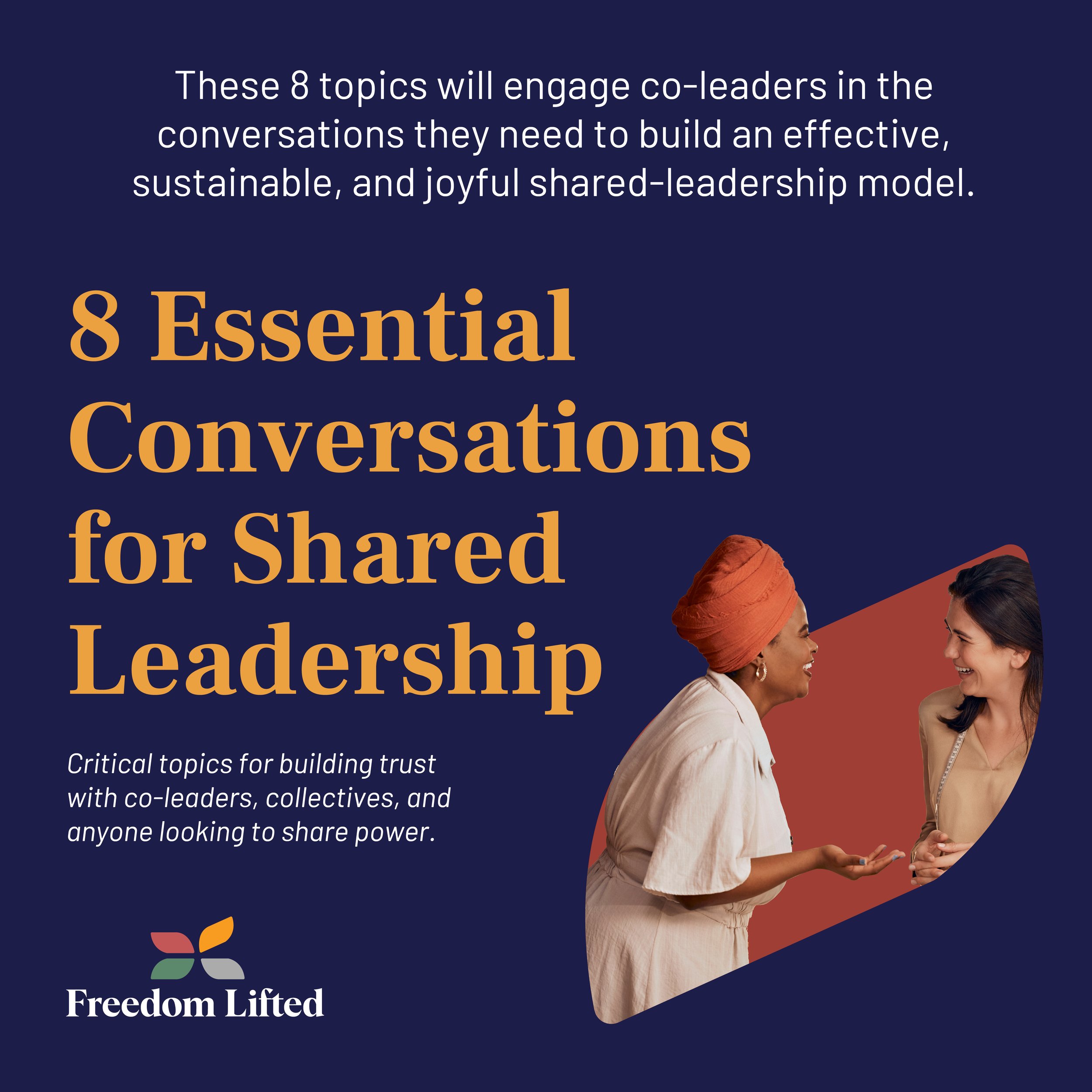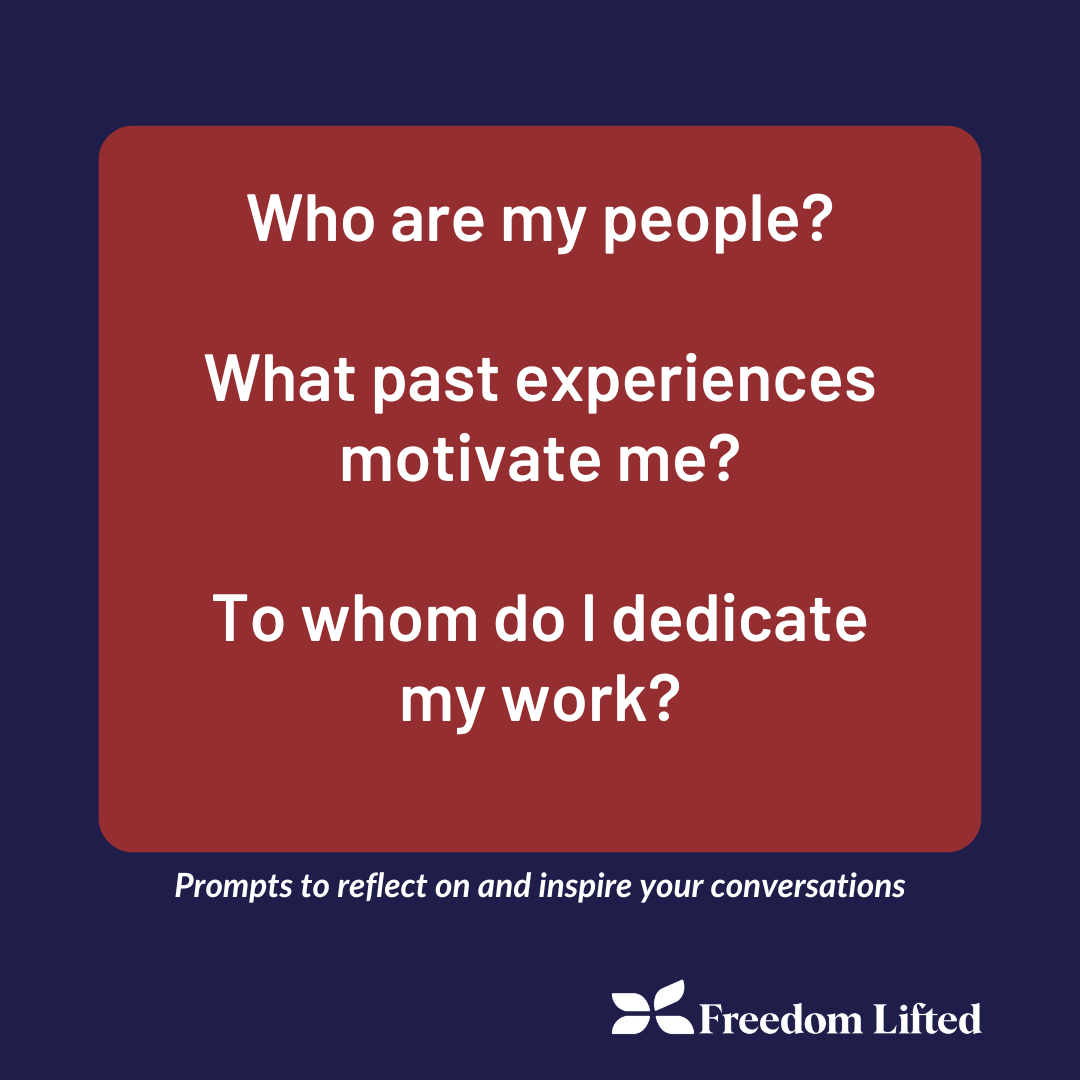Conversation 1: Telling Our Origin Stories
Last year, we shared eight episodes of the Shared Power Podcast, each a conversation with a friend. The two of us talked about our mistakes as leaders and the important things we’ve done well.
I’ve been reflecting on these transformative conversations and remembering that honesty and vulnerability are just as important in working relationships as they are for personal transformation.
That’s why I created the “8 Conversations for Shared Leadership.”
This series of guided conversations will cover critical topics you need to discuss to build trust within shared power relationships.









We aim for these conversations to help you establish a solid foundation of trust and understanding in your leadership teams.
In an 8-part series, we share these conversations and how they can set you up for success in your quest for shared power within your team environment.
Each part includes a set of questions that I recommend asking yourself first and then sharing your responses with co-leaders.
Get started below by reading the first conversation, Telling Our Origin Stories.
When biographer Paula Giddings went to Ella Baker’s apartment in Harlem in the 1980s, Ms. Baker began by evading Giddings’ questions. Instead, she kept asking, “Now, who are your people?”
This story, recounted by Dr. Barbara Ransby in her seminal book Ella Baker and the Black Freedom Movement, has always stayed with me, because Ms. Baker is one of my touchstones. She built and shared power with young people, poor people, and people from the Global South.
Ella Baker’s work spanned more than 5 decades—making grassroots connections, co-creating justice organizations, acting in resistance as a Black woman and in solidarity with other oppressed peoples. Her work has helped me find my way as an activist and an educator.
So if Ms. Baker believed that asking, “Who are your people?” was one of the most important questions we can ask… I think it’s a great place to start.
In justice and equity work, it can feel easy to fixate on our goals and neglect our relationships with our collaborators. But even when we’re addressing the most urgent issues as the leaders of organizations and movements, it’s still critical to slow down to build trust and understanding.
When, inevitably, conflict happens, healthy relationships allow us to repair quickly and resume work.
To build these relationships, we don’t need to conduct tell-all style interviews or resort to corny icebreakers —even though I personally love those! We can simply take time to get curious and learn a bit more about how people come into the work. We can also share our own stories about the people and experiences that shape our perspectives.
Prompts for Conversation #1
You can use these prompts to inspire and expand your conversations within your team environment:
Who are my people? How have they impacted me - in big and small ways?
Who are my most valued mentors? How have they helped me grow?
What past experiences motivate me now?
To whom do I dedicate my work?
I suggest we ask these questions first of ourselves and then share our responses with our co-leaders.
To go deeper with this work, I invite you to listen to my conversation with Yashna Padamsee on the Shared Power Podcast. Or you can watch us chat on YouTube. We talk about how sharing our origin stories brought us closer together in our work and how we can fulfill our missions without sacrificing our people.
Next up is Conversation 2: Redefining Leadership.
You can download the infographic of the 8 essential conversations to share with co-leaders.
Be sure to listen to season one of our Shared Power Podcast to learn more about the conversations, why I believe they are key to advancing justice, and ways to apply them to our work and movements.
Learn more about Mia’s facilitation offerings based on the eight conversations.

